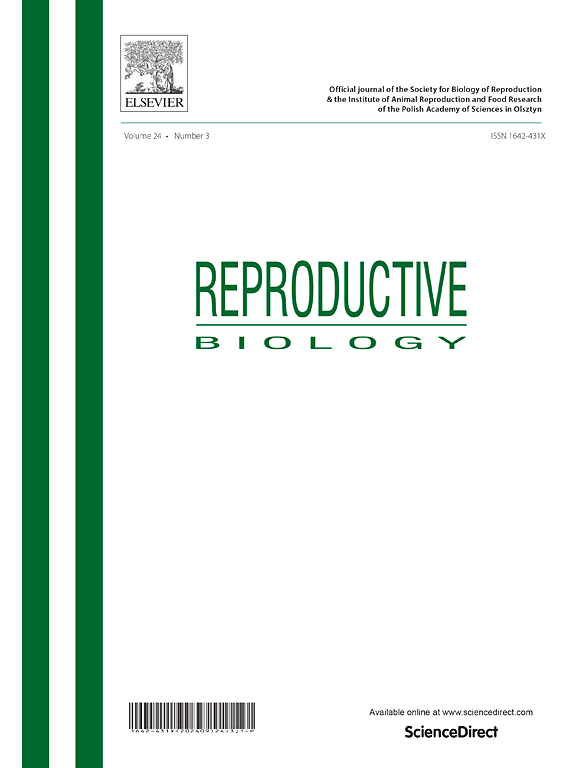环状rna在哺乳动物妊娠中的调节作用
IF 2.5
3区 生物学
Q3 REPRODUCTIVE BIOLOGY
引用次数: 0
摘要
环状rna (circRNAs)已成为哺乳动物妊娠的关键调节因子,影响胎盘发育、免疫调节和激素调节等关键过程。其独特的共价闭环结构赋予了卓越的稳定性,使其成为监测妊娠进展和诊断并发症的非侵入性生物标志物的理想候选人。这篇综述探讨了环状rna在妊娠期间的生理作用,强调了它们在滋养细胞侵袭、血管生成和母胎交流中的作用。此外,它还研究了妊娠相关并发症(包括先兆子痫、妊娠糖尿病(GDM)和胎儿生长受限(FGR))中环状rna的失调,在这些并发症中,特定的环状rna显示出作为早期诊断标志物的潜力。尽管取得了有希望的进展,但仍存在一些挑战,例如需要大规模验证和标准化检测方法,以及对其分子功能的更深入了解。解决这些挑战不仅将促进人类的生殖健康,而且还将通过应用circRNA生物标志物为改善动物育种和牲畜管理开辟道路。本文章由计算机程序翻译,如有差异,请以英文原文为准。
Regulatory role of circRNAs in mammalian pregnancy
Circular RNAs (circRNAs) have emerged as key regulators in mammalian pregnancy, influencing crucial processes such as placental development, immune modulation, and hormonal regulation. Their unique covalently closed-loop structure confers exceptional stability, making them ideal candidates as non-invasive biomarkers for monitoring pregnancy progression and diagnosing complications. This review explores the physiological roles of circRNAs during pregnancy, highlighting their involvement in trophoblast invasion, angiogenesis, and maternal-fetal communication. Additionally, it examines the dysregulation of circRNAs in pregnancy-related complications, including pre-eclampsia, gestational diabetes mellitus (GDM), and fetal growth restriction (FGR), where specific circRNAs show potential as early diagnostic markers. Despite promising advances, several challenges remain, such as the need for large-scale validation and standardized detection methods, as well as a deeper understanding of their molecular functions. Addressing these challenges will not only advance reproductive health in humans but also open avenues for improving animal breeding and livestock management through the application of circRNA biomarkers.
求助全文
通过发布文献求助,成功后即可免费获取论文全文。
去求助
来源期刊

Reproductive biology
生物-生殖生物学
CiteScore
3.90
自引率
0.00%
发文量
95
审稿时长
29 days
期刊介绍:
An official journal of the Society for Biology of Reproduction and the Institute of Animal Reproduction and Food Research of Polish Academy of Sciences in Olsztyn, Poland.
Reproductive Biology is an international, peer-reviewed journal covering all aspects of reproduction in vertebrates. The journal invites original research papers, short communications, review articles and commentaries dealing with reproductive physiology, endocrinology, immunology, molecular and cellular biology, receptor studies, animal breeding as well as andrology, embryology, infertility, assisted reproduction and contraception. Papers from both basic and clinical research will be considered.
 求助内容:
求助内容: 应助结果提醒方式:
应助结果提醒方式:


